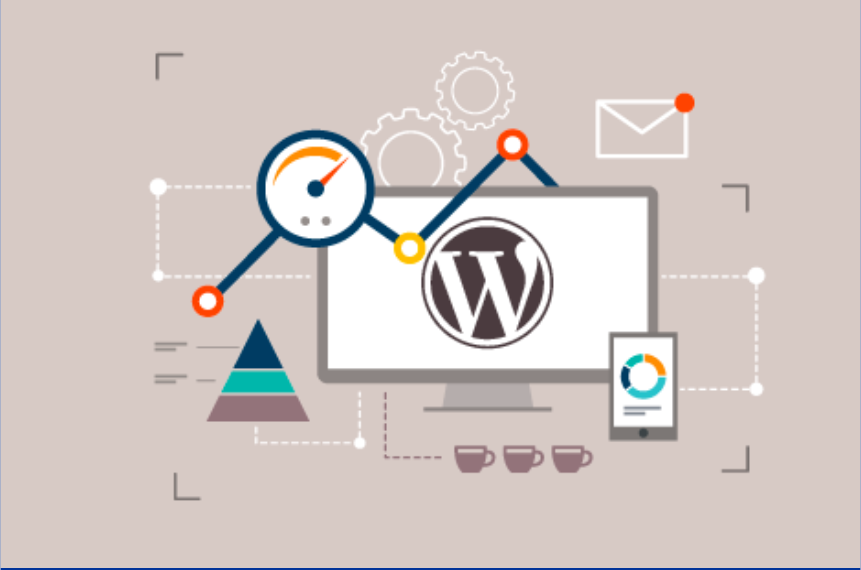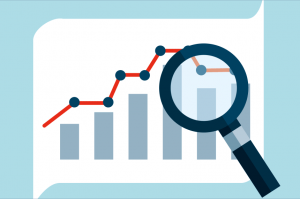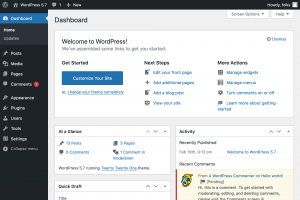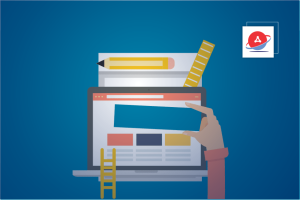When it comes to technology and the internet, time and speed matter the most. Modern lives require tasks to be done quickly.
As for WordPress websites, you have to have a speedy website for better and more conversions.
Loading time is very important for your website visitors. Waiting for the new page to be opened for more seconds than usual would simply result in losing your generated leads.
So, whenever you notice high bounce rates, fewer conversions, and a decrease in your search ranking, one possible reason could be the low speed of your website.
The good news is, WordPress has a lot of ways you can optimize your website for speed. Try these 8 tips to make your WordPress website faster and less frustrating to your website visitors.
What Causes Your Website to Slow Down?
There can be a lot of reasons for the poor functioning of a website. You may not have put much time and effort to build a website with proper performance. Or, the servers of your website are not strong enough to manage your website.
Another cause could be the overload of traffic on your website.
Perhaps your website is getting too much traffic for the promotion you have just organized. When that happens, they might get a ‘try again later’ error just like they occasionally see on Instagram.
Last, but not least, your website might have inefficient code which leads to a longer loading time.
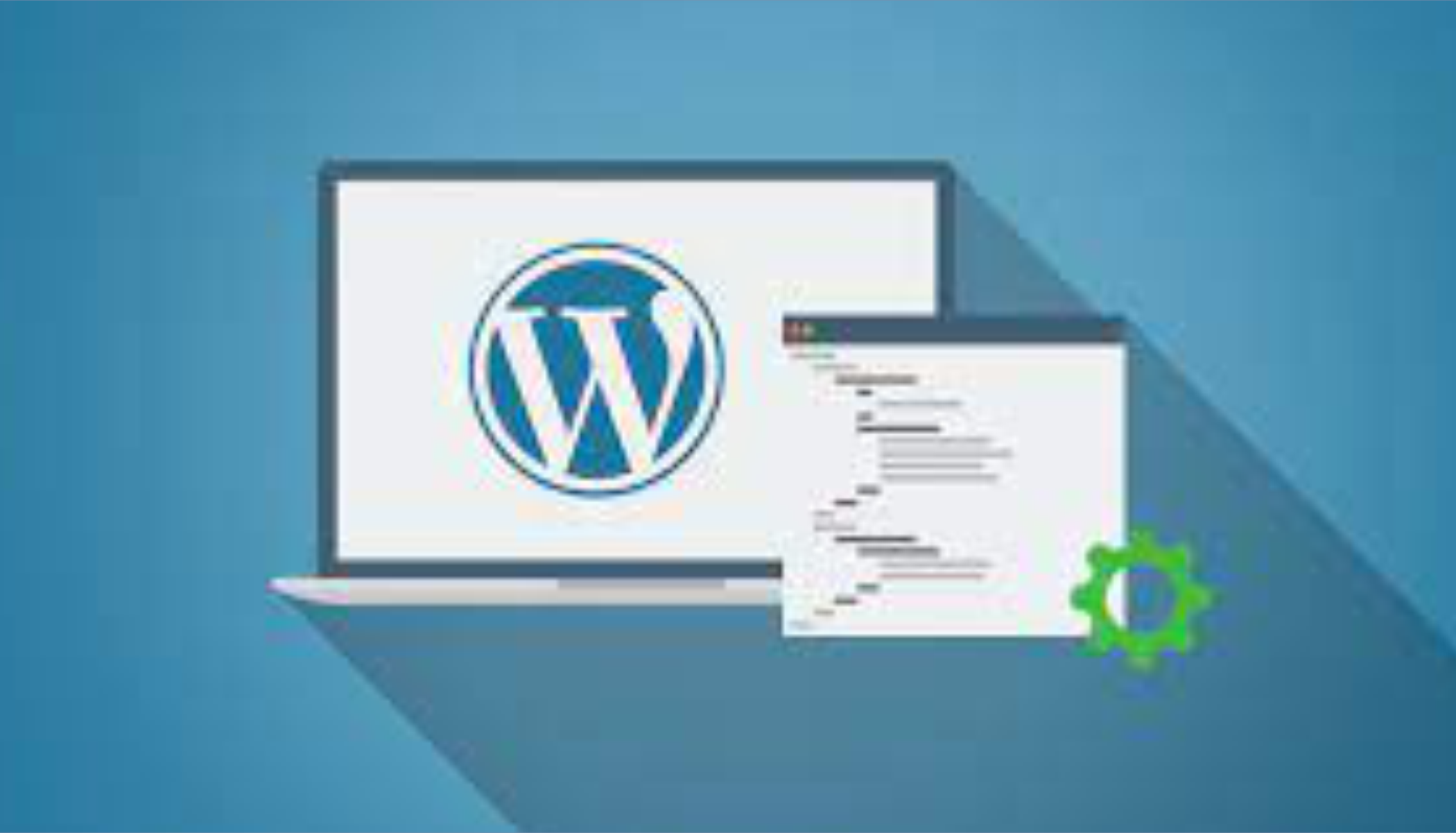
8 Quick Tips to Optimize Your WordPress Website for Speed
Knowing that low speed can severely decrease your conversion rate, you should learn how to optimize your WordPress website for speed. Here are the best quick tips for doing so after building your website:
1. Choose the Right Hosting Plan
Perhaps the most important decision that you make for your website is to choose the right hosting plan. The host of your website is the reason that your website can exist. As a result, the speed of your website depends heavily on the host that you choose.
Your host is responsible for sending the data on your website to your website visitors.
Therefore, the speed of the data transmission relies on the type of server that you choose.
Although businesses are always looking to save money, it’s important that you don’t compromise quality to save a few bucks.
2. Update Your WordPress Features
Update notifications may be nerve-racking sometimes but you really have to take them seriously. Your WordPress plugins, themes, and WordPress software have to be updated every once in a while.
Avoid delaying updates as they can contribute to a slower website.
Installing the latest updates also helps protect your website from a data breach or other threats, because new versions are much stronger and safer than all the previous versions.
3. Implement Caching
Caching helps your WordPress website decrease the number of requests that your website handles. To explain caching in the best way possible, think of it like a memory for your website that remembers data for a short period of time.
Caching works like this: a user visits your website for the first time and a copy of all of their requests will be saved as cached files. So, the next time that the visitor visits your website, all the data will be displayed to them.
As a result, caching reduces the resources that you need to run your website. Consequently, caching can speed up your website to a large extent.
4. Use Image Optimization
Image optimization is highly crucial for your WordPress website because it makes your media files smaller. By optimizing your images, you significantly lower the server space and bandwidth they use.
As images are necessary to keep your website from being dull and uninteresting, you should consider image optimization to make the images smaller.
So, to improve user experience, you need to increase the speed of your website by compressing the sizes of images without affecting their quality. One great tool for doing so is TinyJPG.
5. Minify the Files
Minification is a technique for improving the efficiency of your website’s code. To put it another way, it compresses and eliminates redundant material from your codes, making them run faster.
As the number of characters in each code decreases, the code becomes easier to read, increasing the speed of your website.
When it comes to WordPress websites, you have to use plugins to minify your HTML, JavaScript, and CSS codes.
6. Use a Content Delivery Network
To deliver the large files on your website, you need to use a content delivery network. Physical distance is a factor in the way to sending information online.
Therefore, you need to use a content delivery network to create a faster speed and better user experience regardless of the geo barriers.
7. Make Use of WordPress Plugins of Superior Quality
You can use as many plugins as you like on your WordPress website without slowing it down. The consistency of these plugins, on the other hand, may have an effect on the pace of your website.
As a result, look for high-quality plugins when it comes to security, SEO, and opt-in forms, particularly if you’re building an eCommerce website, as these require more resources.
8. Clean Up Unnecessary Elements
Remove the plugins and themes that you do not usually use. They may need updates and when you do not update them your website is prone to longer loading times.
In addition, the more developed your WordPress website gets, the larger the number of files, images, documents it has.
Many of these files are not used anymore so they just keep taking up space and lower the speed of your website, even if you have optimized your images.
Furthermore, post revisions (these are the former versions of your posts on WordPress) can also take up space, so it’s a good idea to clean those up. For a faster website, clean up any extra elements on your WordPress websites.
Conclusion
The speedy life of the present era is filtering the time-consuming processes of any kind. If your WordPress website takes a lot of time to load, your website visitors won’t tolerate it and they may leave your website. This is sadly true no matter how precious your content is.
Therefore, it is super important to address any potential issues that may decrease your website speed. The above quick tips can help you do so easily and efficiently.
SOURCE: Hostgator Blog
